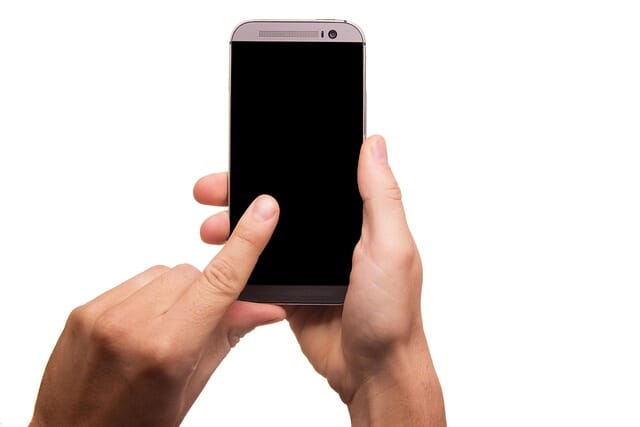
A Beginner's Guide to Understanding Cell Phone Tracing
Introduction
In our fast-paced digital world, cell phones have become indispensable. They are not just tools for communication; they serve as gateways to our lives, holding everything from personal messages to vital information. But what happens when you need to locate someone or verify a number? This is where cell phone tracing comes into play. In this comprehensive guide, we'll explore the ins and outs of cell phone tracing, providing you with the knowledge necessary to understand and utilize this powerful tool effectively.
What is Cell Phone Tracing?
Cell phone tracing refers to the process of determining the location of a mobile device using various methods. It can be used for legitimate reasons such as locating a lost phone, tracking family members for safety, or even conducting investigations by law enforcement agencies.
The Importance of Tracing Cell Phones
Understanding how to trace a cell phone can be beneficial in many situations:
- Lost or Stolen Phones: If your phone goes missing, tracing it can help recover it.
- Safety Concerns: Parents can monitor their children's whereabouts.
- Verification: Businesses may need to confirm the identity of a caller.
How Does Cell Phone Tracing Work?
Cell phone tracing operates on multiple technologies that communicate with cellular towers and satellites. When you make a call or send a message, your phone connects to nearby towers that triangulate its position based on signal strength.

Reverse Cell Phone Lookup: An Overview
One popular method of finding out more about a phone number is through reverse cell phone lookup services. These tools allow users to input a number and retrieve associated information like the owner's name and address.
How Reverse Cell Phone Lookup Works
Benefits of Using Reverse Mobile Lookup Services
- Anonymity: You can find information without revealing your identity.
- Instant Results: Most services provide immediate access to information.
- Comprehensive Data: Many lookups offer additional details like social media accounts.
Trace Cell Phone Number: Techniques and Tools
There are several techniques available for tracing cell numbers:
1. GPS Tracking
Many smartphones come equipped with GPS capabilities that allow them to be tracked in real-time.
How It Works:
- Users must enable location services.
- Applications like "Find My iPhone" or "Google Maps" can track your device’s location.
2. Cell Tower Triangulation
This method uses nearby cell towers to determine your location by measuring signal strength.
Advantages:
- No special app needed—just your cellular connection!
3. Wi-Fi Positioning System (WPS)
If GPS isn’t available, WPS can be used as an alternative by triangulating Wi-Fi signals.
Finding Cell Number Owner Information
Knowing how to find out who owns a specific cell number can be essential in various situations—be it for personal safety or business purposes.
Methods for Discovering Cell Number Ownership
- Many individuals associate their mobile numbers with social media profiles.
- Inputting the number into search engines might return useful results, particularly if it's linked publicly online.
- In some jurisdictions, phone ownership data is accessible through public records.
Track a Cell Number Location Efforts
Tracking a cell number's location involves several steps and considerations:
1. Legal Implications
Before pursuing any tracking efforts, understanding legal boundaries is crucial:
- Always seek consent if you're tracking someone else’s device.
2. Mobile Apps
Numerous applications exist specifically for tracking locations:
| App Name | Features | |-----------------------|----------------------------------------| | Find My Friends | Real-time GPS tracking | | Life360 | Family locator | | Glympse | Temporary sharing of location |
The Ethics Surrounding Cell Phone Tracing
Cell phone tracing opens up discussions about privacy and ethics:
When Is It Acceptable?
It’s generally acceptable when:
- You have consent from the individual being tracked.
- It's necessary for safety reasons (e.g., parents tracking children).
Potential Misuses
Unfortunately, there are cases where cell tracing has been misused:
- Stalking
- Harassment
Understanding ethical implications ensures responsible usage.
Frequently Asked Questions (FAQs)
What is the best way to trace a lost cell phone?
Using built-in features like "Find My iPhone" or "Google's Find My Device" allows you to locate lost phones easily.
Can I trace someone else's cellphone without their permission?
Legally speaking, it's advisable only to track someone's cellphone with their consent due to privacy laws.
Are reverse lookup services reliable?
While most services are reputable, they may not always have complete data due to privacy regulations affecting public records.
How accurate is GPS tracking?
GPS tracking is generally very accurate but can vary depending on environmental factors such as buildings or weather conditions.
What should I do if my phone gets stolen?
Report it immediately! Utilize any tracking features available and inform your carrier right away.
Can I recover data from a lost phone? If you’ve backed up your data using cloud services beforehand, retrieving it should be straightforward even if the physical device isn’t recovered.
Conclusion
A Beginner's Guide to Understanding Cell Phone Tracing encompasses much more than merely locating devices; it's about navigating through technology responsibly while safeguarding reverse phone privacy rights. With the right tools and knowledge at hand—be it reverse mobile lookups or understanding ethical implications—you’ll be well-equipped for responsible use in various scenarios including personal safety and verification processes.
As we continue advancing into an increasingly connected world, staying informed about these technologies becomes not just phone beneficial but essential for everyone navigating this digital landscape.
Feel free to explore the resources mentioned above! Whether you're looking for tools or simply want more information on tracing techniques, understanding these concepts will give you greater control over your digital life while keeping you safe and informed.